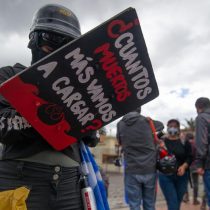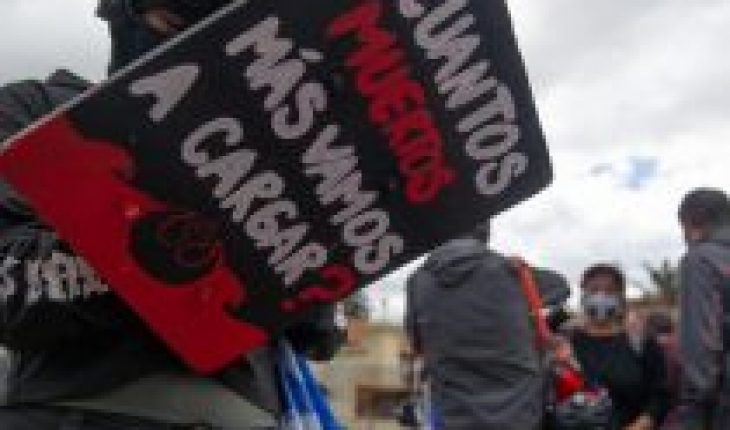
It is already common sense to state that human rights violations are condemnable in any country, place and context in which they occur, since the value of life and freedom is above all political, cultural and social considerations. The problem arises in applying this principle.
Human rights must above all be an ethical basis for the implementation of policy, since it is from the action of the State that they can be violated, both by the agents of the Same, by their action or omission, negligence or tolerance, and by those institutions that the State has the responsibility to control or supervise (companies and private institutions of public interest , e.g.
We Chileans learned firsthand what it is like to live in a society in which fundamental rights are systematically violated by a civic-military dictatorship, which annulled all independence from state organs. But we have also learned that in a democracy these rights can be violated in a serious, massive and widespread manner, as recently indicated by the facts, their figures and reports from multiple national and international organizations.
A brief review of Latin American democracies indicates that human rights are in a worrying situation. If only three current cases are considered, some useful lessons can be drawn for the country.
The elected governments of Colombia and Nicaragua, in their exercise, have used violent repression that has led to disappearances, murders, arbitrary arrests and a climate of terror against the population according to the records provided by the Inter-American Commission on Human Rights and Amnesty International. In other words, the legitimacy of the election of the rulers – in some cases debatable – is not in itself a guarantee of respect for fundamental human rights.
If we add to the above what happened in Bolivia with the dismissal of Evo Morales and what is happening in Peru, with the legal attempts of the defeated candidate at the polls Keiko Fujimori, to ignore the victory with tricks similar to those used by Donald Trump, we can conclude that democracy is suffering an onslaught in the region and with it there is a deterioration of the human rights of the population.
The argument of foreign conspiracy or drug trafficking, to explain the emergence of large social majorities in protest, in various Latin American countries, only weakens democracy. It prevents reading and interpreting social discontent towards corruption and the policies implemented, which have allowed the growth of inequality, income discrimination and the destruction of territories generally inhabited by peoples who had already been cornered in previous centuries by the “modernization” of the new republics.
Limited democracies, imperfect or only formal, have proved incapable or insufficient to ensure the well-being of the population and have failed to effectively protect human rights.
Democracy, which is the best political regime for respecting human rights, cannot be limited to its periodic electoral expression if it is sought to protect and promote them. It needs to be understood as a process of popular participation in different spheres, with mechanisms of control over democratic institutions and with a clearly autonomous institutional human rights system with internationally recognized standards.
Human rights are a conquest of decades of social struggles, which can be weakened or strengthened, suffer setbacks or advances, hence their historical character. In this sense, although doctrinairely they are not reversible and rather progressive, they are subject to political reality, their respect being conditioned to factors of social and political power. Therefore, you can only guarantee, if you have the power to do so, power that lies in the responsibility of the social subjects and the institutions that are built in a democratic coexistence. Otherwise, there is only a “guaranteed fallacy” in the Constitution and laws.
It follows from the above that, while dictatorships are only sustained by human rights violations, democratic regimes are not unscathed by these methods used by the authorities. Be it Nicaragua, whose democratic regime came from an anti-dictatorship struggle leading to a new dictatorial regime – with its ideological discourse to justify human rights violations – or Colombia, which, without going through a dictatorship, occupies theHe ideological discourse of democracy to liquidate its opponents, it is clear that the supervigilance of respect for human rights must take place without discriminating the type of political regime and must be done from a valued civil society, an autonomous institutionality of the executive power and an international human rights system with monitoring capacity.
Chile does not escape this situation. A ruler who voted No in the 1988 plebiscite was no guarantee that in a democratic regime he would not systematically and massively violate human rights.
The content of this opinion column is the sole responsibility of its author, and does not necessarily reflect the editorial line or position of El Mostrador.





